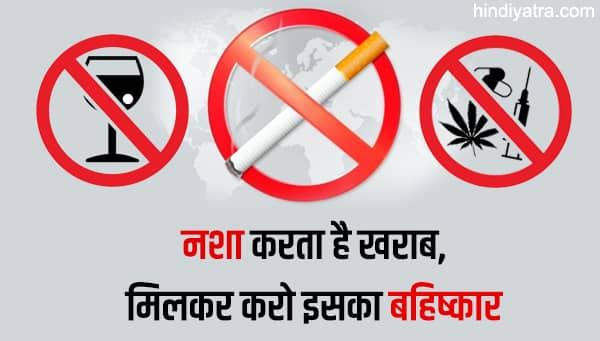Addiction is a battle—silent, painful, and isolating. Whether it’s alcohol, drugs, or prescription medication, the struggle to regain control over your life is real. But recovery is possible, and it often begins with a single step: seeking help. For many in Maharashtra, especially in and around Pune, that first step starts at a Nasha Mukti Kendra—a dedicated rehabilitation center that offers structured and compassionate recovery programs.
In this guide, we’ll walk you through everything you need to know about rehabilitation at a Nasha Mukti Kendra in Pune—how it works, what to expect, and how to choose the right center for yourself or a loved one.
What Is a Nasha Mukti Kendra?
"Nasha Mukti Kendra" is a Hindi term that translates to “Addiction-Free Center” or “De-addiction Center.” These are specialized rehabilitation centers that provide treatment and support to individuals struggling with substance abuse and addiction.
The best centers in Pune combine medical care with psychological support, therapy, counseling, and aftercare. Their goal isn’t just detoxification, but holistic healing—mentally, physically, and emotionally.
Why Pune?
Pune is rapidly becoming one of India’s preferred cities for quality healthcare, and addiction recovery is no exception. With a mix of modern infrastructure, natural surroundings, and access to skilled healthcare professionals, Pune offers a balanced environment for healing.
Some reasons why Pune is a good choice for rehabilitation:
-
Pleasant climate for year-round recovery
-
Access to expert counselors and doctors
-
A mix of urban resources and peaceful settings
-
Affordable treatment options compared to metro cities
Types of Addictions Treated
Nasha Mukti Kendras in Pune typically deal with a wide range of addictions, such as:
-
Alcohol dependency
-
Drug abuse (cocaine, heroin, marijuana, LSD, etc.)
-
Prescription medication addiction (painkillers, sedatives)
-
Behavioral addictions (gaming, gambling, internet)
Each addiction type requires a slightly different approach, and reputed centers personalize treatment plans accordingly.
What to Expect: The Rehabilitation Process
1. Initial Assessment
The journey starts with a full assessment. Medical professionals evaluate the extent of addiction, underlying mental health issues, and any co-occurring disorders. This stage helps develop a customized recovery plan.
2. Detoxification
Detox is the process of flushing out the substance from the body. It is often the most physically demanding stage, and can come with withdrawal symptoms like nausea, anxiety, or tremors. Supervision by medical staff ensures safety and comfort during this stage.
3. Therapy and Counseling
Once detox is complete, psychological healing begins. Therapy sessions are both individual and group-based, focusing on:
-
Understanding the root causes of addiction
-
Building coping strategies
-
Replacing destructive habits with healthy ones
-
Rebuilding self-esteem
Some centers also involve family therapy to rebuild strained relationships and provide long-term support.
4. Rehabilitation Activities
A good Nasha Mukti Kendra doesn't just rely on medication or counseling. Activities such as yoga, meditation, art therapy, group discussions, and physical exercise are part of daily schedules. These activities promote mental clarity, discipline, and emotional release.
5. Aftercare and Relapse Prevention
Recovery doesn't end once the program does. Relapse is a real risk, and most centers offer aftercare programs to keep you on track. This may include weekly check-ins, ongoing counseling, or support groups.
Facilities to Look For
Not all centers offer the same quality of care. While choosing a Nasha Mukti Kendra in Pune, consider the following:
-
24/7 medical support
-
Certified psychiatrists and psychologists
-
Hygienic and secure living spaces
-
Customized treatment programs
-
Recreational and therapeutic activities
-
Family support and counseling
-
Post-treatment follow-up plans
Some premium centers may also offer private rooms, organic meals, and holistic healing therapies like Ayurveda or naturopathy.
Duration of Stay
The length of treatment depends on individual needs. On average:
-
Short-term programs: 21 to 30 days (detox and basic therapy)
-
Medium-term programs: 60 to 90 days (comprehensive rehab)
-
Long-term programs: 6 months or more (for chronic cases)
Staying longer doesn’t necessarily mean the problem is worse—it may simply be the recommended path for lasting recovery.
Cost of Rehabilitation in Pune
Costs vary depending on the type of center, duration of stay, and services provided. Here’s a general breakdown:
-
Basic centers: ₹8,000 to ₹15,000/month
-
Mid-range centers: ₹20,000 to ₹40,000/month
-
Premium facilities: ₹50,000 to ₹1,00,000+/month
Some NGOs and charitable trusts in Pune offer free or subsidized treatment for those in financial need.
How to Choose the Right Nasha Mukti Kendra
Here are some tips:
-
Check accreditation – Make sure the center is registered and follows medical guidelines.
-
Read reviews – Look for real testimonials and feedback from former patients.
-
Visit in person – If possible, visit the facility before admitting someone.
-
Ask about success rates – While no center can guarantee a cure, transparency about recovery rates is a good sign.
-
Speak with staff – A conversation can reveal a lot about the professionalism and compassion of the team.
Success Stories: Real People, Real Change
Many people have walked into Nasha Mukti Kendras in Pune at their lowest point—and walked out with new purpose. Recovery is not a straight road, but with the right help, countless individuals have managed to rebuild careers, repair relationships, and regain self-respect.
From young adults overcoming peer pressure to working professionals breaking free from alcohol, the stories are endless—and inspiring.
Final Thoughts: It’s Never Too Late
Addiction may feel like a trap, but help is closer than you think. A Nasha Mukti Kendra in Pune could be the safe, structured, and supportive place you or your loved one need to start fresh.
Recovery isn’t just about saying “no” to a substance—it’s about saying “yes” to a new life.
So, if you or someone you know is struggling, take the first step. Reach out. Ask questions. Visit a center. Because healing begins with hope—and the journey begins now.

